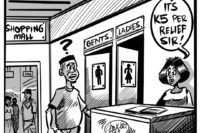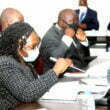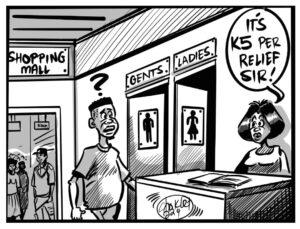MEDICAL expert Dr Aaron Mujajati has asked the Ministry of Health to give a better explanation for subjecting COVID-19 tests conducted in Nakonde to further validation when that was not done in other towns.
In a Facebook posting, Monday afternoon, Dr Mujajati said it confused him to see COVID-19 cases drastically reduce to zero, Monday, from the 85 cases recorded two days prior, and argued that subjection of the test results to validation was an invalid excuse for these records.
“From 85 to 15 to zero cases. We need a better explanation than validation of results. I am confused,” Dr Mujajati posted with a hashtag #prevent&protect.
And when contacted for an elaborate comment following his post, Dr Mujajati said the Ministry of Health made Zambians believe that the test method being used to diagnose COVID-19 was Polymerase Chain Reaction (PCR), a scientific way used to analyze a short sequence of DNA, even in samples containing only minute quantities of the DNA or RNA.
He argued that a PCR test could never be validated by another PCR test and challenged the Ministry of Health to explain what kind of validation was being done on the tests on COVID-19 and why.
“Here is why I am saying I am confused: the explanation from government is that they are validating the samples from Nakonde. Validation is a very new phenomenon that they are explaining; all along, they were not telling us that the results require validation. And if they are validating the results, we were all made to believe that the test method that we are using to diagnose COVID is PCR. Now, I don’t understand; what method are we using to validate results from PCR? I think there is need for better explanation and more information from that perspective. What test is being used to validate PCR, because you can’t use PCR to validate PCR as well. Unless you are using two different labs (laboratory) where one lab has tested then another lab also goes to validate,” Dr Mujajati argued.
“So, this means that what is meant by validation needs to be clarified and expanded on to make it clear to all of us because, to be honest, just leaving it at saying, ‘we are still validating the samples from this other place so therefore, we have nothing to say about the place (Nakonde) until we validate’… we need more information because validation is a new phenomenon. The results in Lusaka were never validated, at least they never told us they validated them. So, am I missing something? Did anyone ever hear that there was validation of results from anywhere? They have been giving us results every 24 hours, so at which [point] are they validating them? This is why I am saying the information is not adding up; can they tell a better story?”
He, however, said he did not doubt the accuracy of the information emanating from the Ministry of Health, but added that citizens had the right to question the authorities when they provided information that did not make sense.
“There is no reason for us not to trust what the Minister of Health is telling us. I, for one, trust what they are telling us. I believe in what the Minister of Health is saying, except that when it doesn’t make sense, they should be magnanimous enough to tell me that, ‘here is why it didn’t make sense to you’ and they should be kind enough to be able to explain clearly because so far, we’ve always been told that the results are 24 hours old and all along, the issue of validation never came up. So, how are they validating? That’s what I want to know, how are they validating and what are they validating and what has necessitated the validation this time around when it wasn’t required the other times?” wondered Dr Mujajati.
“We’ve been told of zero cases before, for one whole week, we had zero, zero, zero, zero…and validation never came up. So, why is validation so important now? Explain to say, ‘here is why we are doing it and here is how we are doing the validation.’ There is nothing sinister, it’s important to tell us how they are doing the validation because that’s how we all move. For me, my argument is that it’s very important that us, as citizens, believe what government is telling us. Number two; we have no reason, as citizens, to doubt what government is telling us, but at the same time, when they are explaining things, they should explain in full.”












